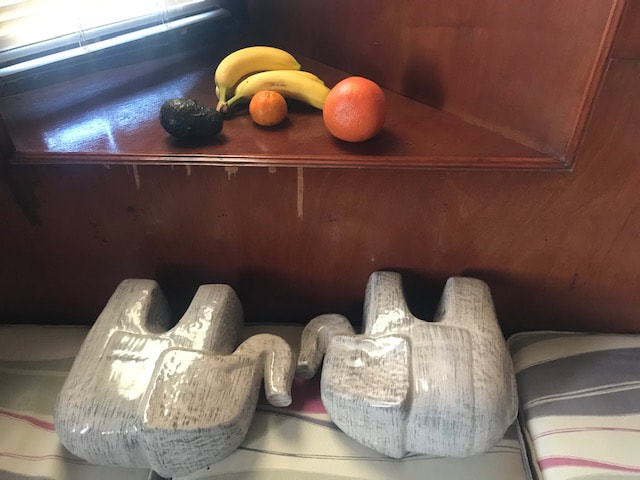|
Dreaming Elephants
“Dreams have always been important to me, both those that arrive in the night and those that lead my days” Quote from My book “Note by Note” My husband and I are in Mexico—La Paz to be precise. It is hot, dry and noisy. We have an uncomfortable Airbnb and I am worried about insomnia. I am worried about all the things to trip over getting to the bathroom at night and there is no dining table-- just a low coffee table covered with artsy things: a platter of fake pears and two large elephants, carved out of grey soapstone. In the spirit of making the best of things, we clear the table and carefully lay the elephants on their sides so they won’t fall and break. That night (surprisingly) I sleep well and have dreams with messages. My husband’s dreams are equally vivid and one night we have similar themes in our dreams. I wake up from a dream of feeling trapped in the Airbnb into a second dream of a servant transforming into a dancer and director. Then in a double lucid dream event, I wake up into a third dream, realizing that I had dreamed both dreams. In the morning I think, ‘What has my wise self cooked up for me to learn from?’ ‘Which dream do I choose to live from—the trapped or fulfilled?’ The messages continue with dreams of me speaking up on my own behalf. My dreams of the day which are about telling my story through creativity, and my dreams of the night seem to be meeting. Sometimes the wise self (the elephant) has other plans than what we consciously expect. Can I let go and leave enough space and curiosity to allow these surprises? When I return to Toronto I feel stronger and not worn out though it has been a strenuous trip. I thank the dreaming elephants for helping me to push into my fears ( as Michelle Obama describes in her book “The Light We Carry”) in a healthy way.
0 Comments
Leave a Reply. |
AuthorKristi Magraw is known for having developed a unique synthesis of Eastern healing (Five Element theory) and Western ways of working with the mind, called the Magraw Method, which she established in 1979. This method uses metaphoric language and release techniques to help people heal physical and emotional pain. Archives
September 2023
Categories |

 RSS Feed
RSS Feed
